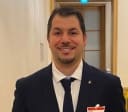Get psychological help for a child in a CMPP (centre for medical, psychological and educational care)
 Proposed by Comité de la Démarche Accessible Updated on il y a un an
Proposed by Comité de la Démarche Accessible Updated on il y a un anCentres for medical, psychological and educational care (CMPP) are dedicated to the mental health of children and teenagers from 0 to 20 years old.
On site, it is possible to obtain medication and consult a psychologist, a child psychiatrist, a social worker, a psychomotor therapist, a speech therapist, and an educator free of charge.
CMPPs help find solutions for children who might have:
- psychological issues (great sadness, depression, screen or drug addictions, trouble sleeping, nightmares, anger issues, etc...) ;
- educational issues (problems at school, difficulties speaking, reading or writing, etc...) ;
- or social issues (difficult relationships with family or friends, feelings of loneliness and being lost, violent behavior, etc...).
CMPPs provide complete medical monitoring: screening (this means finding out what the problem is), taking in charge and treating the children.
Care is reimbursed by Health Insurance: you do not pay if you have an up-to-date Vitale card.
There are also CMPs for adults (from 16 years old): see the Réfugiés.info file
The CMP and CMPP are open to everyone. You can go there directly, without asking your GP.
The CMP and CMPP are open to everyone. You can go there directly, without asking your GP.
Mental health affects thoughts, emotions, stress, relationships with others, actions and decisions in daily life. Having good mental health means having emotional, psychological and social balance.
Leaving a country and starting a new life in France means adapting, learning a new language, understanding a new culture, meeting new people, changing habits. For a child, it also means seeing parents stressed about paperwork, family in another country, the need for money. It is sometimes difficult and we don't know who to ask for help.
It is therefore important to explain children's problems to professionals, to talk about difficulties to your doctor or social worker, to make an appointment at a CMPP.
It is necessary to take care of your mental health and that of your family, and to feel good.
Leaving a country and starting a new life in France means adapting, learning a new language, understanding a new culture, meeting new people, changing habits. For a child, it also means seeing parents stressed about paperwork, family in another country, the need for money. It is sometimes difficult and we don't know who to ask for help.
It is therefore important to explain children's problems to professionals, to talk about difficulties to your doctor or social worker, to make an appointment at a CMPP.
It is necessary to take care of your mental health and that of your family, and to feel good.
How to do it?
What happens next?
Health
Family
Find psychological help
Procedures for health
See a doctor
Procedures for my family
Health for women and children
Psychological help
Advice for parents
Support for young people
15 contributors mobilized
 a mugnier
a mugnierAdmin
 claudia m
claudia mAdmin
 elisa01Writer
elisa01Writer hendTranslator
hendTranslator niknameTranslator
niknameTranslator nour alhindiTranslator
nour alhindiTranslator irenegndTranslator
irenegndTranslator diplosamTranslator
diplosamTranslator kim.delaunayTranslator
kim.delaunayTranslator marianneukraineTranslator
marianneukraineTranslator shayanroushanTranslator
shayanroushanTranslator igornrgTranslator
igornrgTranslator olga b.Translator
olga b.Translator rohullah expertTranslator
rohullah expertTranslator noorTranslator
noorTranslator
